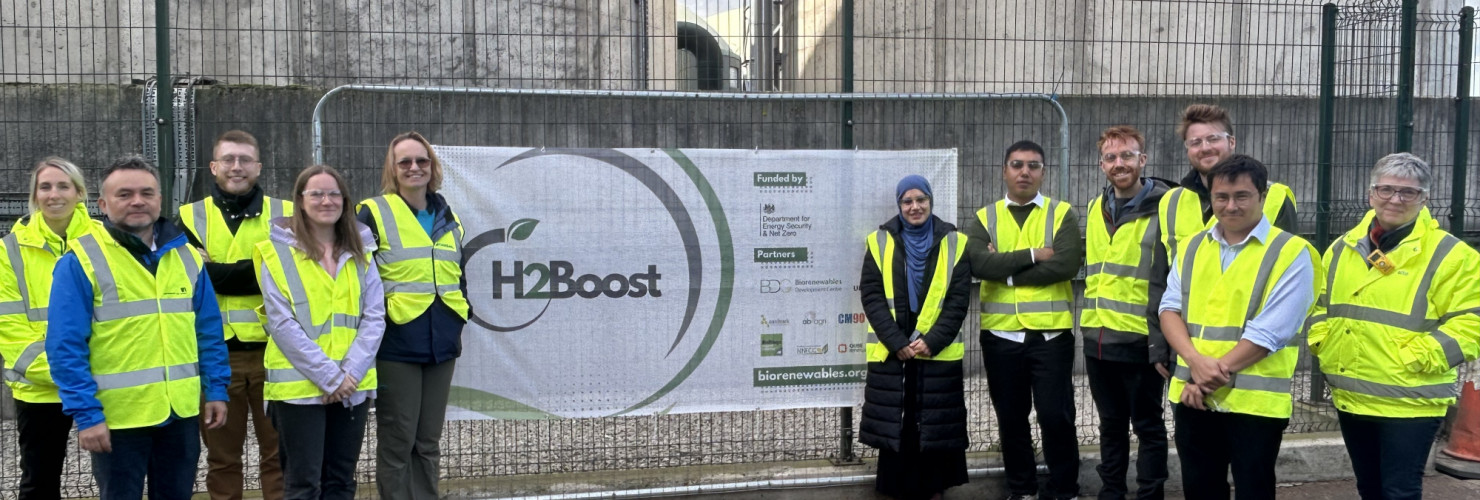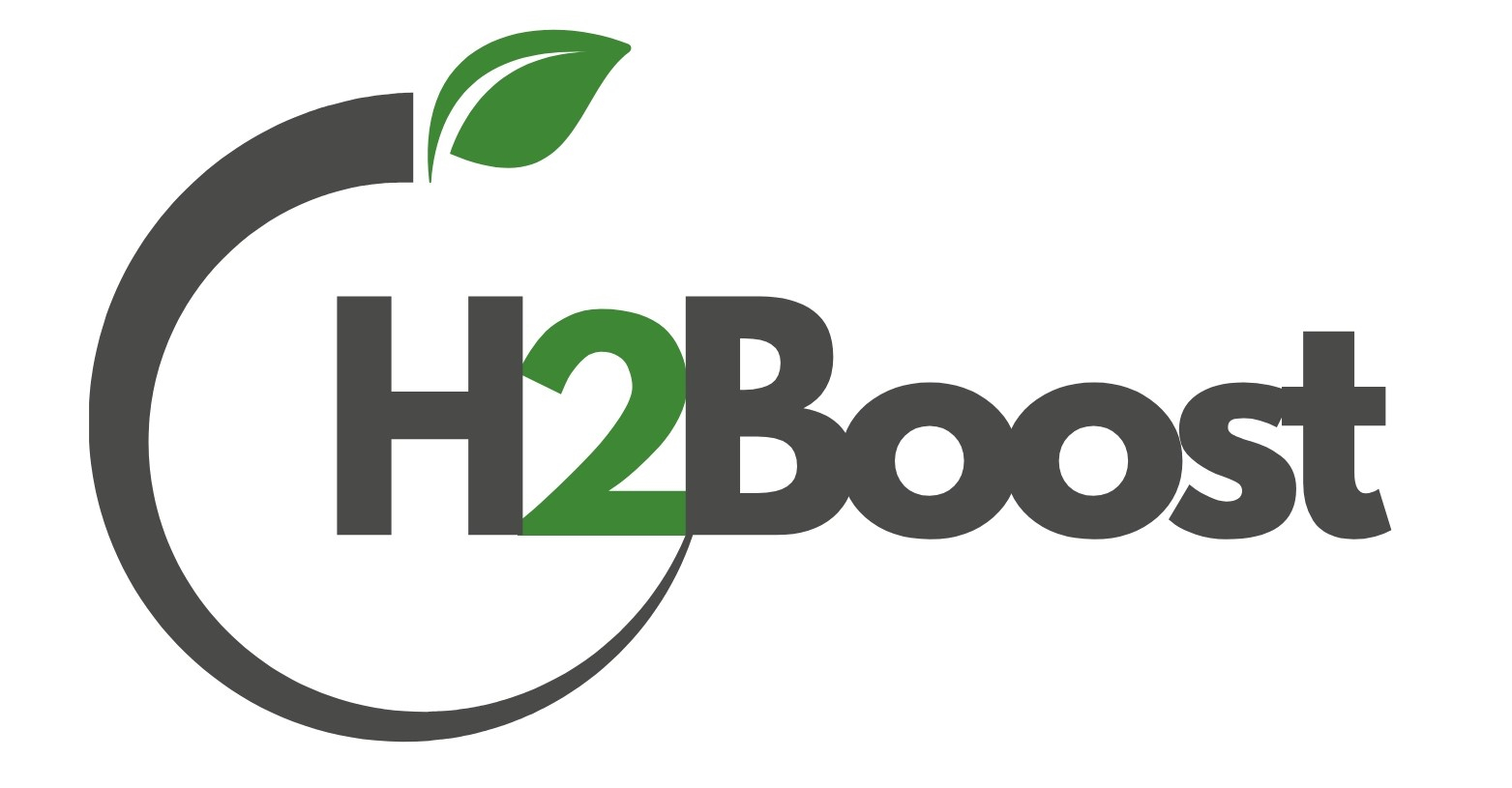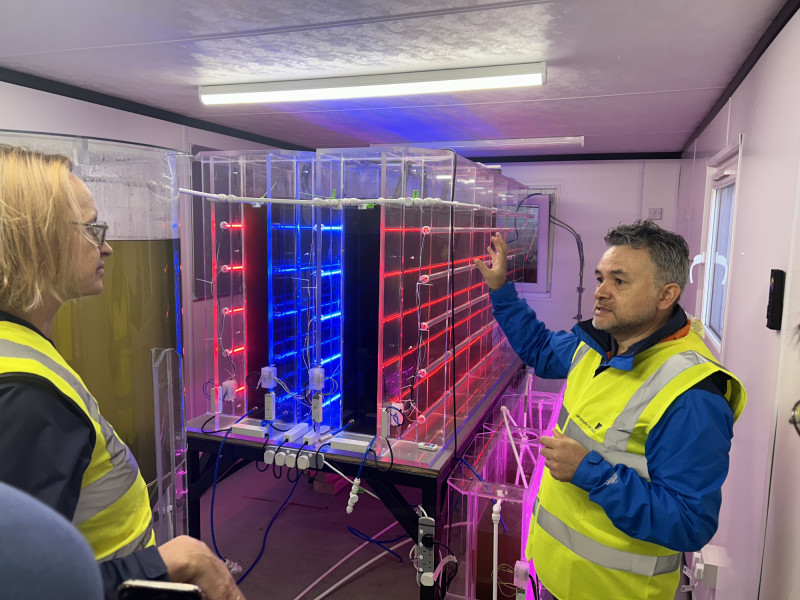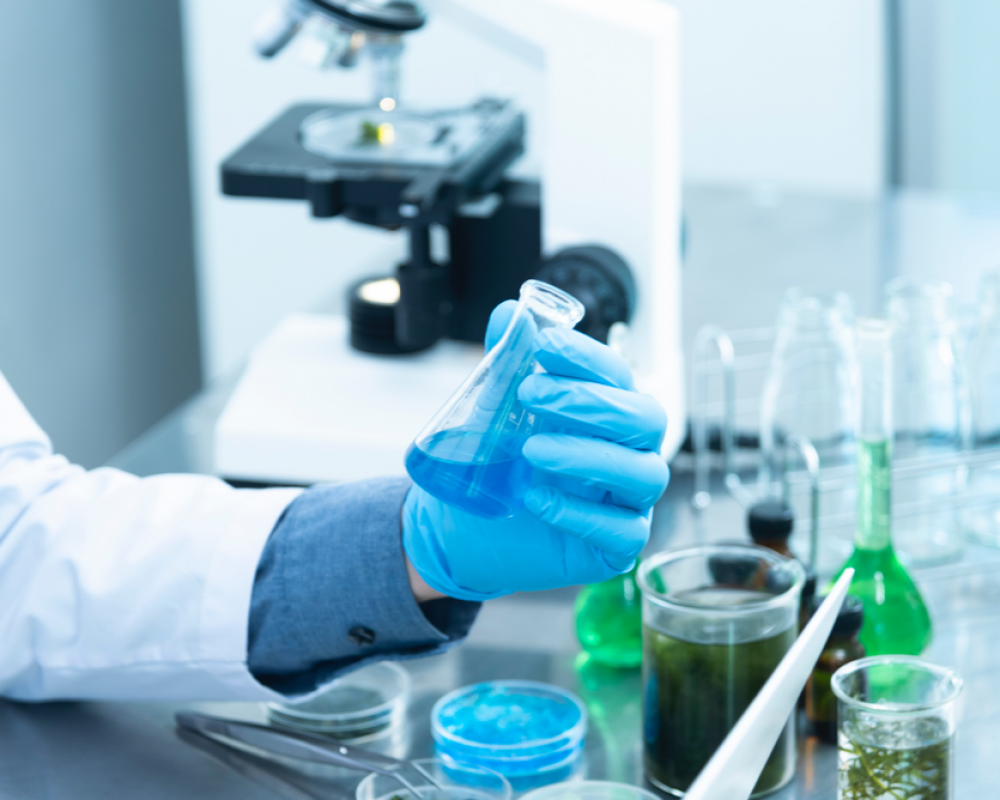
H2Boost project welcomes government officials to witness progress with
waste-to-hydrogen technology
The government-backed H2Boost project, led by the Biorenewables Development Centre (BDC), recently hosted a delegation from the Department for Energy Security and Net Zero (DESNZ) to its demonstration facility near Selby. The visit highlighted the project's innovative approach to clean hydrogen production and carbon capture, which could support the UK's net-zero ambitions.


The delegation included key figures from DESNZ's Bioenergy and Carbon Removals, Low Carbon Hydrogen Standard, and Hydrogen Production teams. They toured the newly opened facility at The Maltings Organic Treatment site in North Yorkshire to assess the technology's potential.
The H2Boost system utilises an innovative circular system to transform everyday waste into clean hydrogen. Through a unique process called dark fermentation, pre-treated organic waste gets converted into biohydrogen. The process goes a step further by capturing carbon and reusing by-products, maximising efficiency and minimising waste.
Penny Cunningham, Programme Operations Manager said
The site visit gave us a great chance to showcase our comprehensive approach to sustainable energy generation. We had in-depth conversations about scaling up our technology and the critical part H2Boost can play in the UK's journey to net zero emissions. This highlighted the project's strategic significance for our national energy security planning.
The £5 million government investment in H2Boost is part of the Hydrogen BECCS Innovation Programme funded through the £1 billion Net Zero Innovation Portfolio (NZIP). The project is a successful collaboration between industry and academic partners, including the Biorenewables Development Centre (BDC) and the University of Leeds.
The H2Boost project aims to develop a commercially viable and sustainable process for producing biohydrogen from organic waste. The technology has the potential to play a crucial role in decarbonising the UK's transport sector, with low-carbon hydrogen technologies expected to provide up to 35% of the UK's energy requirements by 2050.

About the Hydrogen BECCS Innovation Programme
The Hydrogen BECCS Innovation Programme has awarded £26.2 million to six organisations, including five micro- and small-sized enterprises, to deliver commercially viable hydrogen BECCS innovations. The programme supports technologies that can produce hydrogen from biogenic feedstocks and combine it with carbon capture, accelerating the commercialisation of innovative clean energy technologies through the 2020s and 2030s.
